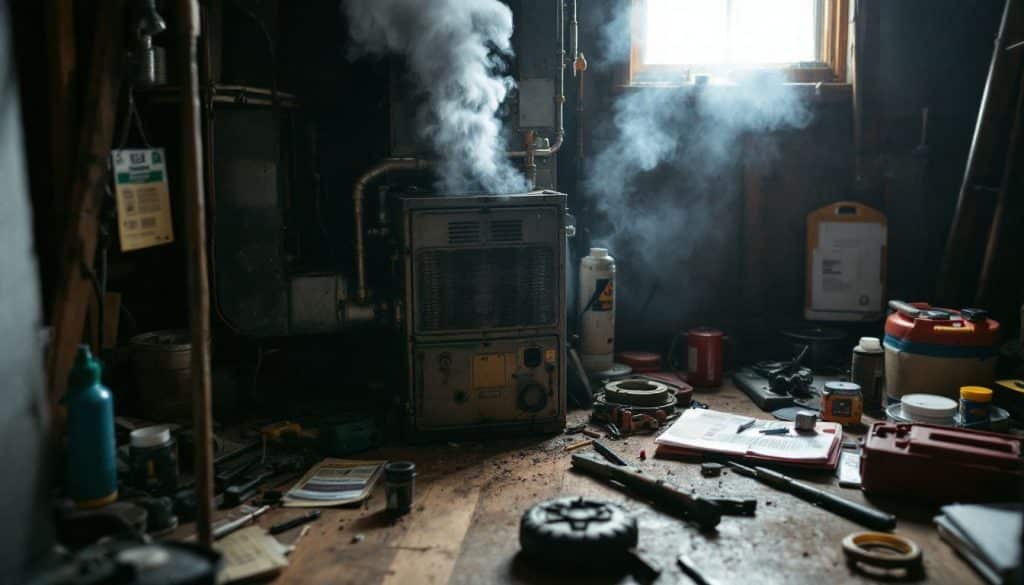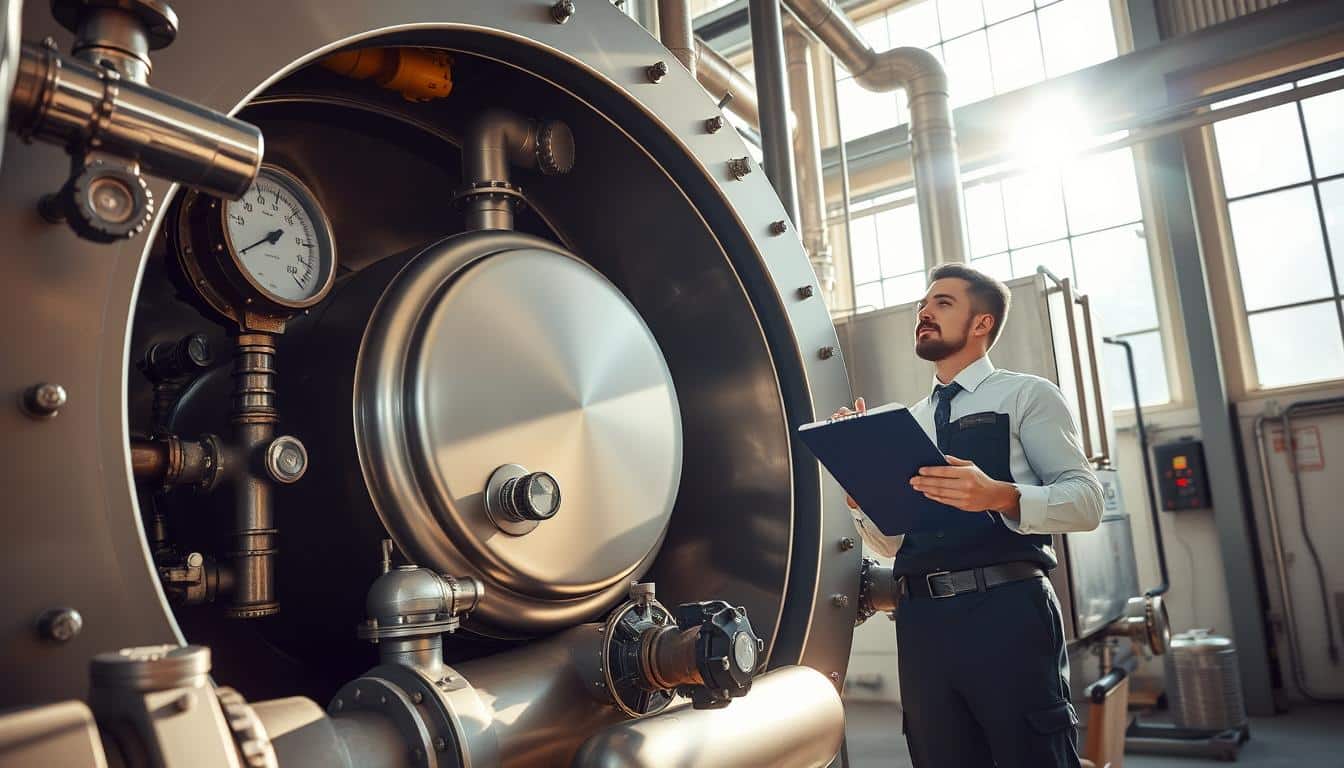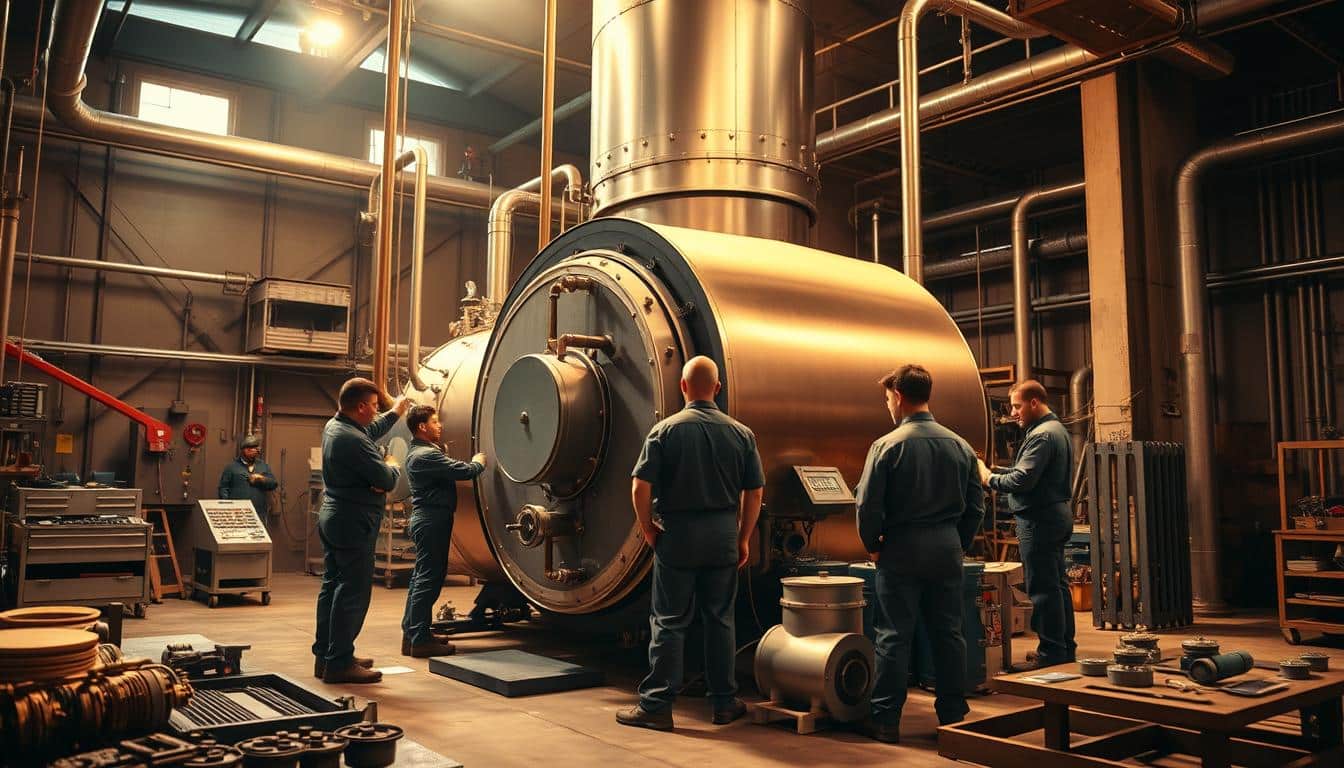Table of Contents
Thinking about when should I replace my furnace instead of repairing it? Furnaces usually last 15 to 20 years. Making the right choice affects our comfort, wallets, and daily lives.
We’ve been in your shoes, looking for ways to stay cozy without spending too much.
Our research has uncovered important advice. It helps you decide if it’s time for a new furnace or another repair.
Knowing the signs, like skyrocketing energy bills and constant malfunctions, empowers you. It helps you make a smart choice about your heating system.
Ready for cozier, more efficient days? Let’s explore when getting a new furnace is the better choice!
Key Takeaways
- If your furnace is over 15 years old, it might be time for a new one. New furnaces save money because they use less energy.
- Constantly fixing your furnace can get expensive. If it breaks down a lot, a new energy-efficient model could cost less in the long run.
- High energy bills and uneven heating in your home are signs you may need to replace your furnace. New ones work better and make every room comfortable.
- Loud noises from your furnace mean something inside is not right. A quiet, efficient new furnace can lower stress and bills.
- Think about how often you repair your furnace, its age, and if it heats unevenly or makes noise. These signs help decide between repairing or getting a new one.
- Hiring professionals like Raye-Van Enterprises Inc. means you get fast help when needed. They make sure the job is done right, giving you peace of mind.
Signs It’s Time to Replace Your Furnace
When it’s time to replace our furnace, we notice key signs. These indicators can guide us in making the right choice for our home heating needs.
Age
The age of our furnace is a key factor in deciding to replace it. Most furnaces last about 15 to 20 years. If ours is older than that, it may be time for a change. An old furnace often needs more frequent repairs.
These repairs can add up quickly and cost us more money over time.
Newer models are usually much more energy efficient. They help lower our energy bills and keep our homes warm effectively. We should consider replacing our old heating system if its age is creeping up on us.
Saving money now could mean investing in a reliable and efficient furnace for the future.
Frequent repairs
Frequent repairs can be a big sign it’s time for a new furnace. If we find ourselves calling for heating system repair often, it adds up quickly. We spend money on parts and labor, but the problems keep coming back.
A furnace that needs constant fixing is not reliable.
Aging units tend to break down more often. The costs of these repairs increase as the unit gets older. In many cases, it makes more sense to invest in a new heating system than to keep fixing the old one.
An energy-efficient furnace will save us money on bills and reduce our worry about breakdowns during winter months.
Increased energy bills
Higher energy bills might mean we need a new furnace. If our heating costs go up without reason, it’s a sign. Our system might be working too hard.
This could be because our furnace is old or not efficient. A new, energy-saving furnace can save us money in the long run.
When our furnace struggles to heat our space properly, it uses more energy. This means we pay more each month for less comfort. Regular maintenance helps, but sometimes, a new furnace is needed.
Choosing a better model can save us money and improve comfort over time.
Uneven heating
Uneven heating in our homes is a clear sign of furnace trouble. We might feel cold in some rooms but warm in others. This usually means our heating system is failing.
If we keep adjusting the thermostat, it’s time to think about a new furnace.
Poor heat distribution affects comfort and can increase energy costs. A new, energy-efficient furnace ensures better airflow and consistent warmth. Upgrading can improve both comfort and efficiency in our home heating.
Unusual noises
Unusual noises from our furnace are a big warning sign. Sounds like banging, squeaking, or rattling are not normal. They indicate something is wrong inside the unit.
Over time, parts wear out and break down.
We should listen if our heating system starts making loud sounds. These noises may show that repairs won’t last long. A new furnace can run quietly and efficiently.
Keeping energy efficiency in mind helps us save on bills too.
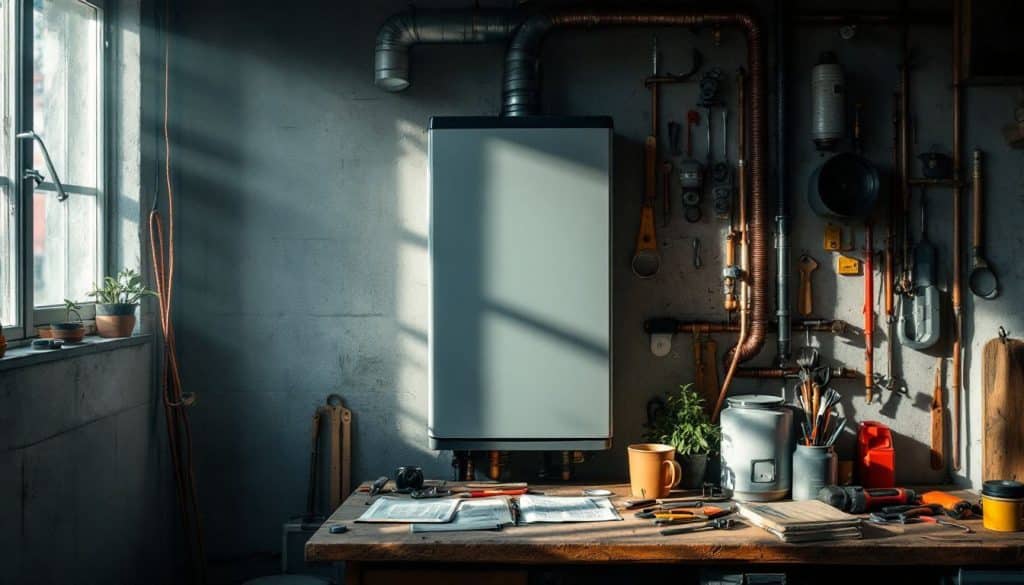
Cost Comparison: Repair vs. Replace
Thinking about fixing or replacing our furnace, costs are key. Repairs can quickly add up, while a new unit might save money over time.
Factors to consider
Several factors help us decide if we should repair or replace our furnace. The age of the furnace is important. Most furnaces last 15 to 20 years. If ours is older, replacing might be better.
Frequent repairs can quickly increase costs. If we’re calling for repairs often, it’s more expensive. Also, watch for higher energy bills.
An old or inefficient unit works harder, leading to higher costs each month. These signs help us decide if it’s time for a new furnace instead of fixing the old one again.
An experienced HVAC contractor like Raye-Van Enterprises Inc. can check your system and advise on whether maintenance or replacement is best.
Average costs
Deciding to repair or replace your furnace is a big decision. We’re here to help, focusing on signs it’s time for a furnace upgrade and the costs of both options. Let’s look at the average costs for repairing versus replacing your furnace.
| Service | Average Repair Cost | Average Replacement Cost |
|---|---|---|
| Furnace Repair | $100 – $600 | N/A |
| Furnace Replacement | N/A | $2,500 – $6,000 |
We need to consider several factors when deciding whether to repair or replace a furnace. These include the age of the unit, frequency of repairs, and the efficiency of your current setup. If your furnace is over 15 years old, requires frequent repairs, has led to increased energy bills, provides uneven heating, or makes unusual noises, it might be time for a replacement.
Replacing your furnace comes with numerous benefits. A new system often means improved energy efficiency, leading to lower utility bills. You can also expect better air quality and greater reliability, minimizing the chances of unexpected breakdowns during cold weather.
In conclusion, by keeping an eye out for these key signs and understanding the cost implications, you can make an informed decision that best suits your needs and budget.
Benefits of Replacing Your Furnace
Replacing your furnace can save you money on energy bills. New models are more efficient and improve air quality in your home.
Improved energy efficiency
An energy-efficient furnace saves money. Newer models use less energy to heat your home or business. This leads to lower energy bills over time. A furnace with a good efficiency rating means you get more warmth for each dollar spent.
Upgrading to a modern heating system offers many benefits. Your new units will run quieter and cleaner. Better air quality keeps you comfortable and healthy. By investing in a replacement, you make your space cozier while being kind to your wallet and the planet.
Better air quality
Replacing your furnace can lead to better air quality in your home. Newer models filter out dust, pollen, and other pollutants more effectively. A fresh unit helps reduce allergens that can cause problems for you and your family.
Older heating systems may not clean the air well. This can lead to increased dust levels indoors. With a new furnace, you breathe easier and feel healthier overall. Better air quality is just one of the many benefits of upgrading your heating system.
Greater reliability
A new furnace provides greater reliability. Older units can break down often, leaving you cold. Frequent repairs waste time and money. We want our heating system to work well every day.
New models are built to last longer and run better. This means fewer worries about breakdowns. Your home will stay warm even in the harshest winters. By upgrading your heating system, you invest in comfort and peace of mind for yourself and your family.
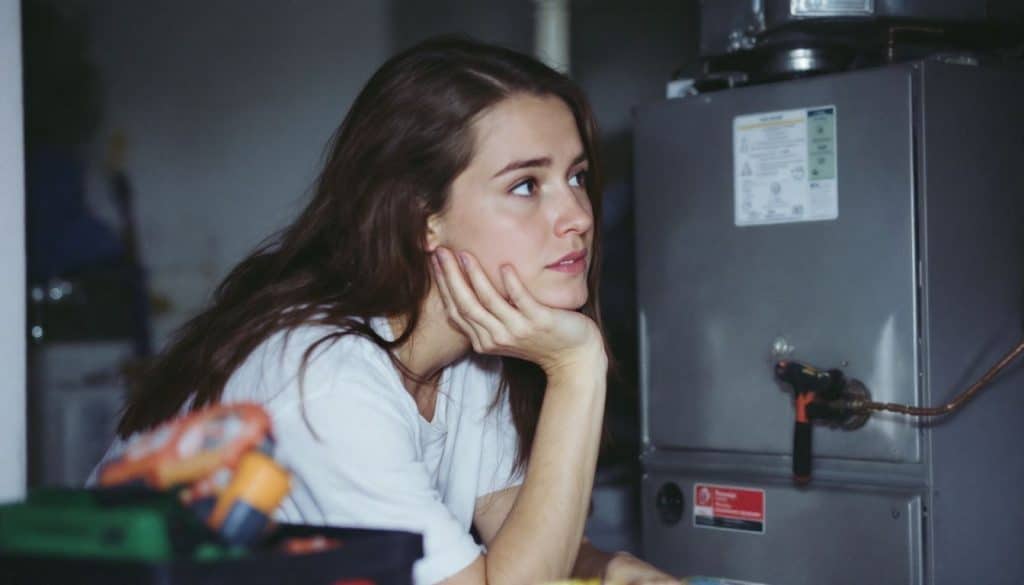
Conclusion
We discussed important signs that indicate when to replace your furnace. If your furnace is old, often breaks down, or makes strange noises, it’s time for a new one. Higher energy bills also suggest it’s time for an upgrade.
New furnaces are more efficient and can improve air quality in your home.
Making the choice between repair and replacement matters a lot for comfort and savings. We encourage everyone to assess their heating system regularly. For more help or information on this topic, look into local HVAC services or guides online.
Let’s take control of our home comfort today!
FAQs
When should I replace my furnace instead of repairing it?
Look out for signs like age, uneven heating, or poor performance. Also, watch for a drop in your furnace’s efficiency rating. If repairs are needed often or your system is nearing the end of its life, it might be time for a new one.
How does the cost factor into deciding between furnace repair and replacement?
Consider the cost of repairs. If fixing your furnace would cost almost as much as a new one, it might be smarter to upgrade or replace.
Can regular maintenance extend my furnace lifespan?
Yes! Keeping up with HVAC maintenance can make your heating system last longer. Following a furnace maintenance checklist is a good start.
When should I start considering home heating options for replacing my old furnace?
Start looking into new heating options if your current unit has ongoing problems. This includes high energy bills or if your furnace is getting old.
Is there any specific time during which I should perform Heating System Maintenance?
Annual check-ups are a good rule of thumb. But, if you notice sudden performance issues, strange noises, or big energy bill hikes, you should act fast.

